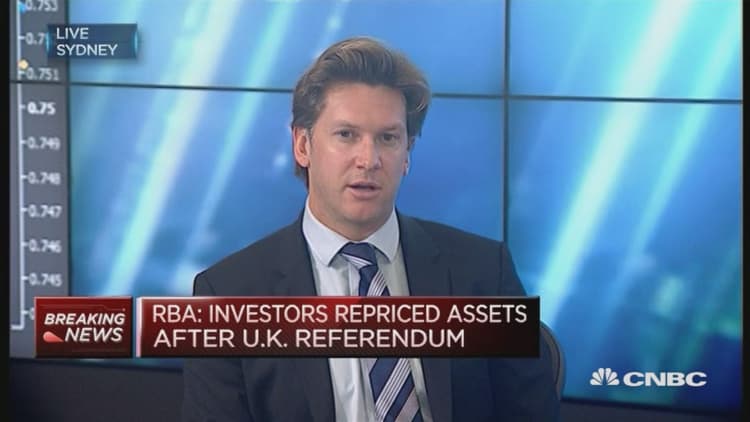The Reserve Bank of Australia (RBA) conserved its ammunition at Tuesday's policy review, as widely expected, despite renewed doubts over the economic outlook following an inconclusive election.
In an official statement, the central bank said it left its key cash rate unchanged at 1.75 percent, citing low inflation and overall decent economic growth, leaving the door open to looser policy if needed. While the statement made no mention of domestic politics, strategists say last weekend's election played a major role behind Tuesday's decision.
"The inconclusive result of the weekend's elections will place another period of political uncertainty for Australia, which means markets will turn to the next meeting in August, where another 25 basis point (bps) cut to 1.5 percent is at the top of the agenda," said IG market strategist Bernard Aw.
The world's twelfth-largest economy held federal elections on Saturday but neither major political party secured the 76 of the 150 seats in the House of Representatives, as the lower house of parliament is known, that are needed to form a majority government. Regardless of the outcome, economists predict an extended period of uncertainty, which could weigh on confidence, efforts at budget repair as well as key pension and property reforms.
Speaking ahead of the RBA decision, Prime Minister Malcolm Turnbull said it would be a few more days before vote counting concludes, adding that he would work harder to regain the trust of citizens.
July marked the second straight month that the central bank held its fire amid a series of soft economic indicators.
Consumer price inflation, a key metric for the RBA, rose an annual 1.3 percent during the March quarter, well below the RBA's target range of 2-3 percent. During the same period, wage growth edged up 2.1 percent on-year, marking an 18-year low. Given subdued growth in labor costs and low cost pressures globally, CPI is expected to stay tepid, the RBA said on Tuesday.
"Reading between the lines, the Bank may be saying that if the CPI inflation data for the second quarter due for release on 27th July are weak, then it will cut rates to 1.5 percent in August," Capital Economics said in a note following the decision.

The RBA also flagged large declines in business investment as a concern but noted that other areas of domestic demand, as well as employment and exports, continued to expand.
Moves in the currency market reduce the need for the RBA to provide more stimulus. In the past, the RBA cut interest rates to tame its high-flying currency, but now the tide has turned. The Australian dollar is down more than 2 percent against the greenback since the results of the U.K. referendum, Mizuho Bank pointed out. Indeed, the lower exchange rate was boosting sentiment, the central bank said.
High home prices remain a thorn in the RBA's side however.
On Friday, CoreLogic's private gauge revealed a 3.8 percent rise in combined dwelling values across capital cities during the April-June period. But the RBA didn't appear too concerned on Tuesday, stating that prices could moderate with a large supply of apartments scheduled to come on stream over the next few years.
Regarding the U.K. referendum, the RBA observed there were no drastic effects on global economic activity following the historic vote. Outside of the U.K. itself, major economic damage may be hard to discern, it added.
"This makes sense since Australia is not that exposed to events in Europe. The RBA wasn't expecting fiscal policy to help the economy anyway and the recent volatility in the financial markets has faded," stated Capital Economics.

